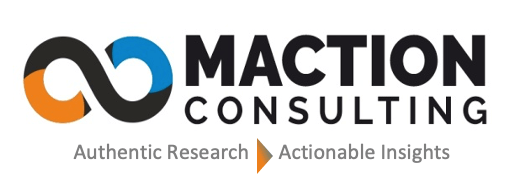In today’s rapidly evolving market landscape, traditional market research methods are increasingly falling short. To gain deeper insights into consumer preferences, behaviors, and emotions, businesses are turning to immersive technologies that offer a more authentic and engaging experience. One such breakthrough is 360-degree feedback, a powerful tool that is revolutionizing the way marketers collect and analyze data.
Unlocking Consumer Insights with 360-Degree Feedback Tools
360-degree feedback, also known as multi-rater feedback or circular feedback, involves gathering feedback from multiple sources, including peers, subordinates, superiors, and customers. By capturing a comprehensive view of an individual or team’s performance, this approach provides valuable insights that can be used to drive improvement and growth.
In the context of market research, 360-degree feedback can be leveraged to:
- Measure customer satisfaction: By collecting feedback from customers across various touchpoints, businesses can identify areas where they excel and areas where they need to improve.
- Assess brand perception: Understanding how customers perceive a brand is essential for building loyalty and trust. 360-degree feedback can help identify strengths and weaknesses in brand positioning.
- Evaluate product or service performance: By gathering feedback from customers, employees, and other stakeholders, businesses can assess the effectiveness of their offerings and identify areas for improvement.
- Identify training and development needs: 360-degree feedback can help identify skills gaps and areas where employees need additional training or support.
How Immersive Feedback Techniques Are Revolutionizing Market Research
Immersive technologies, such as virtual reality (VR) and augmented reality (AR), are playing a crucial role in enhancing the effectiveness of 360-degree feedback. By creating realistic and engaging experiences, these technologies can provide a deeper understanding of consumer behavior and preferences.
Some of the key benefits of using immersive feedback techniques include:
- Increased engagement: Immersive experiences can capture the attention of participants and make the feedback process more enjoyable.
- Enhanced empathy: By placing participants in the shoes of others, immersive technologies can foster empathy and understanding.
- Improved data quality: Immersive feedback can lead to more accurate and insightful data by providing a more realistic and authentic context.
- Cost-effective: Immersive feedback techniques can be more cost-effective than traditional market research methods, as they can reduce the need for physical surveys or focus groups.
Case Study 1: Retail Giant Leverages VR to Improve Store Design
A major retail chain wanted to optimize the layout of its stores to enhance the customer experience. Using VR technology, the company created virtual store environments that customers could explore. By collecting feedback on factors such as product visibility, navigation, and overall atmosphere, the retailer was able to identify areas for improvement and redesign its stores to better meet the needs of its customers.
Case Study 2: Automotive Manufacturer Uses AR to Gather Feedback on New Vehicle Designs
An automotive manufacturer wanted to gather feedback on the design of a new vehicle concept. Using AR technology, the company created a virtual prototype that customers could interact with. By overlaying the digital vehicle onto a real-world environment, customers were able to get a better sense of its size, proportions, and overall aesthetic appeal. The feedback collected through this immersive experience helped the manufacturer refine the design and ensure that it met the expectations of its target market.
As immersive technologies continue to advance, their potential to transform market research is immense. By combining the power of 360-degree feedback with immersive experiences, businesses can gain deeper insights into consumer behavior and preferences, leading to more effective marketing strategies and improved customer satisfaction.


